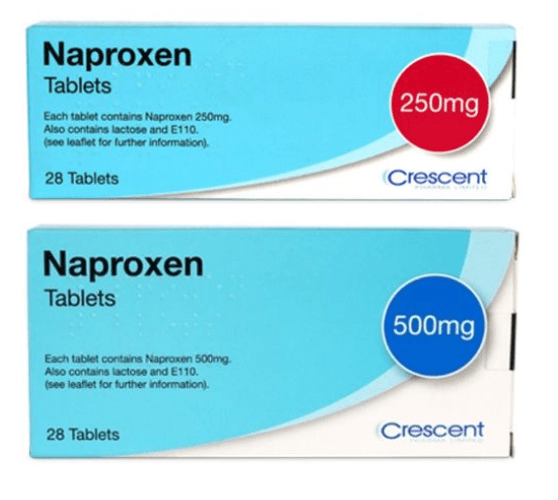Description
Naproxen is a non-steroidal anti-inflammatory drug (NSAID) prescribed to relieve pain, swelling, and inflammation associated with conditions like arthritis, menstrual cramps, musculoskeletal injuries, gout, and dental pain.
How It Works
Naproxen inhibits cyclooxygenase (COX-1 and COX-2) enzymes, reducing the production of prostaglandins. This process helps alleviate pain and swelling at the site of inflammation.
Why Choose Naproxen
It offers longer-lasting relief than many NSAIDs, with pain control often lasting 8–12 hours. This extended duration allows twice-daily dosing. Naproxen is well-established, cost-effective, and available in multiple strengths and formulations, making it suitable for various patient needs.
Important Note
Take the lowest effective dose for the shortest duration necessary. Prolonged use may increase the risk of gastrointestinal bleeding, kidney impairment, or cardiovascular events. Stay well hydrated, report any stomach pain or blood in stools, and monitor blood pressure if using long-term.


